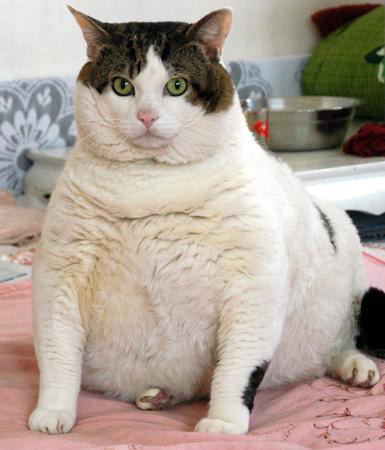| 正面 | 2351.fat 英 [fæt]美 [fæt]     |
|---|---|
| 背面 |      释义: 1. *al-ter- "the other of two" => *an-ter- => ander (德语单词) => other (前面的元音音变为o, 在古英语中字母n在摩擦音前消失、脱落).adj. 肥的,胖的;油腻的;丰满的n. 脂肪,肥肉vt. 养肥;在…中加入脂肪vi. 长肥n. (Fat)人名;(法、西、塞)法特;(东南亚国家华语)发 例句: 1. Because you're not burning calories, everything you eat turns to fat.由于没有消耗卡路里,你吃的所有东西都会变成脂肪。 fat 肥胖的来自PIE*peie, 肥胖的,流油脂的,词源同pituitary, pitch. fatfat: [OE] Fat is one of a large Indo-European family of words denoting the substance ‘fat’ or its consequences in terms of obesity – the probably related Greek pímelē and Latin pinguis, for instance, signified respectively ‘lard’ and ‘fat’. The Germanic members of the family, which include German fett, Dutch vet, and Swedish fet as well as English fat, go back to a prehistoric Germanic *faitaz.fat (adj.)Old English fætt "fat, fatted, plump, obese," originally a contracted past participle of fættian "to cram, stuff," from Proto-Germanic *faitida "fatted," from verb *faitjan "to fatten," from *faita- "plump, fat" (cognates: Old Frisian fatt, Old Norse feitr, Dutch vet, German feist "fat"), from PIE *poid- "to abound in water, milk, fat, etc." (source also of Greek piduein "to gush forth"), from root *peie- "to be fat, swell" (cognates: Sanskrit payate "swells, exuberates," pituh "juice, sap, resin;" Lithuanian pienas "milk;" Greek pion "fat; wealthy;" Latin pinguis "fat"). Meaning "abounding in comforts, prosperous" is late 14c. Teen slang meaning "attractive, up to date" (also later phat) is attested from 1951. Fat cat "privileged and rich person" is from 1928; fat chance "no chance at all" attested from 1905, perhaps ironic (the expression is found earlier in the sense "good opportunity"). Fathead is from 1842; fat-witted is from 1590s; fatso is first recorded 1943. Expression the fat is in the fire originally meant "the plan has failed" (1560s).fat (n.)"fat part of anything," mid-14c., from fat (v.). Cognate with Dutch vet, German Fett, Swedish fett, Danish fedt. As a component of animal bodies, 1530s. Figurative sense of "best or most rewarding part" is from 1560s. Expression the fat is in the fire originally meant "the plan has failed" (1560s).fat (v.)Old English fættian "to become fat, fatten," from the source of fat (adj.). Replaced by fatten except in Biblical fatted calf." |